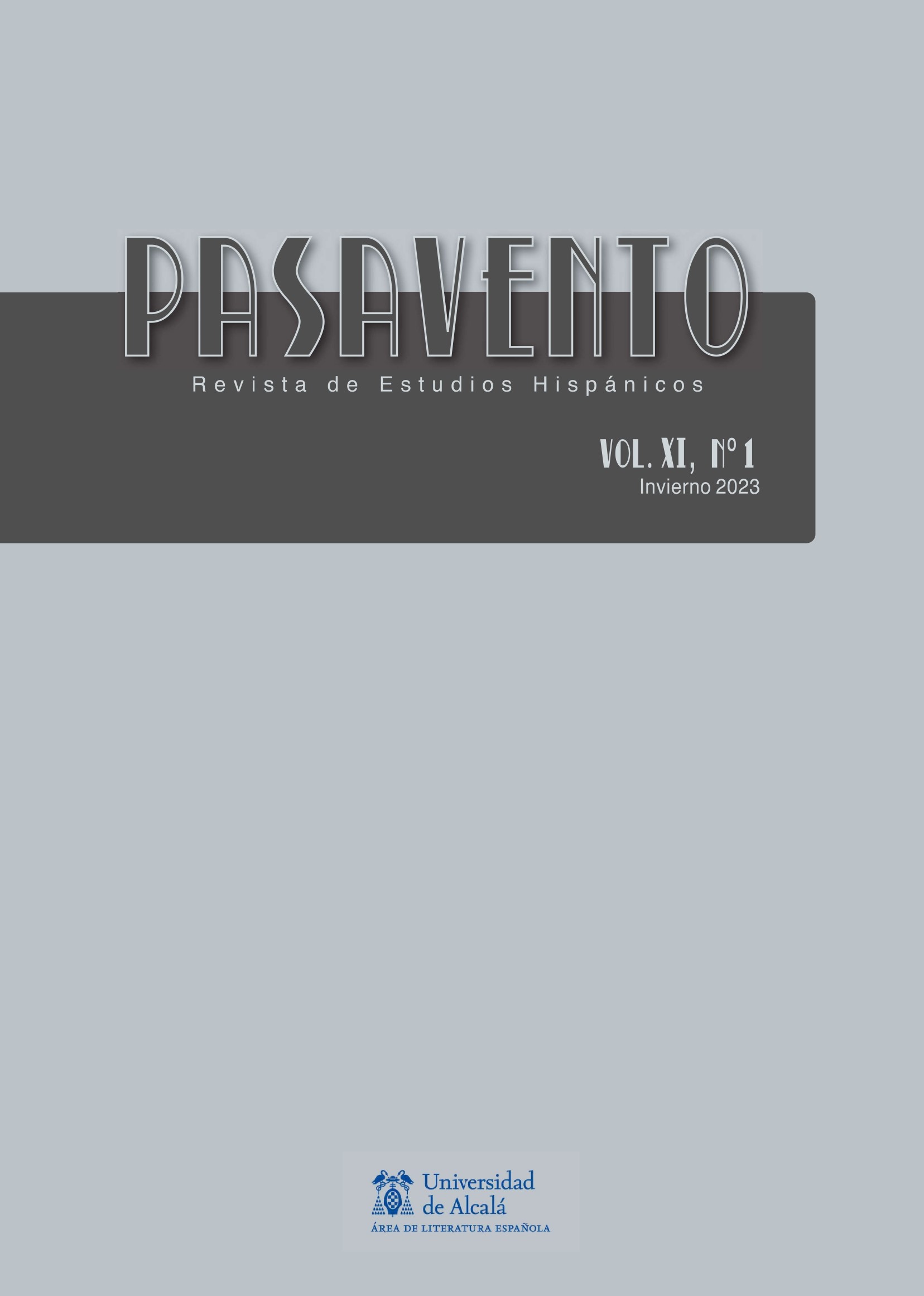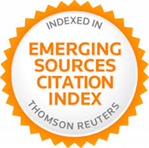The keys of the body: a reading of the erotic poetics of Cristina Peri Rossi
DOI:
https://doi.org/10.37536/preh.2023.11.1.2047Keywords:
Cristina Peri Rossi, Body, Eroticism, PoeticAbstract
Much of the lyrical and narrative work of Cristina Peri Rossi (Montevideo, 1941) seems to be articulated with the modulations of an erotic poetics. It is, in effect, a particular and very special way of conceiving, carrying out and expressing the literary fact, keeping in mind the body, desire, the intermittence and realizations of sex and sexuality, as well as singular resources, forms and contents that, triggered by fiction or poetry, they emerge to propose postures, positions and perspectives on the human condition. With this sign, the emergence, novelty and roundness of Peri Rossi's work in Latin American and Spanish letters (not to mention the impact of her translations in other countries) will be extremely valuable; well because by assuming her own voice, autonomous and unprotected - that of a woman, writer, dissident and lesbian - she seeks her space and dares to say precisely what, about desire, the body, sex or the dismantling of essences identity, throbbed excluded, in the margin. In this sense, this essay addresses from a very personal point of view the keys to figuration of the body and its desire in the work of Peri Rossi, looking at that body in the madness of erotic swallowing, in the conjunction of the human and the animal, in the blurring of bodies and identities as forms of political contestation, in the vivification of the female body that navigates as a metaphor for the sexual and loving bond.
References
Agustini, Delmira (2006). Poesías completas. Madrid: Cátedra.
Aínsa, Fernando (2010). “Los refugios del cuerpo desarticulado”, Cartaphilus. Revista de Investigación y Crítica Estética, 7-8: 15-29.
Bataille, Georges (1999). El erotismo. Barcelona: Tusquets.
Bataille, Georges (2001). La felicidad, el erotismo y la literatura. Ensayos 1944-1961. Buenos Aires: Adriana Hidalgo editora.
Berenguer, Amanda (2002). Constelación de un navío (Poesía 1950-2002). Montevideo: H. Editores.
Castillo, Rosa (1993). “Veleidoso ritual e inusitado”, Suplemento literario Quimera, Maturín, Venezuela, 15.
Ceronetti, Guido (2006). El silencio del cuerpo. Barcelona: Acantilado.
Cruz, Sor Juana Inés de la (1992). Obras completas. México: Porrúa.
Duras, Marguerite (2000). Escribir. Madrid: Alianza.
Duras, Marguerite (2020). La vida material. Madrid: Alianza.
Echavarren, Roberto (1998). Arte andrógino. Estilo versus moda en un siglo corto. Buenos Aires: Editorial Colihue.
Giorgio, Marosa di (2006). Camino de pedrerías. Buenos Aires: El Cuenco de Plata.
Ibarbourou, Juana de (2003). Antología poética. Córdoba: Ediciones del Sur.
Kamenszain, Tamara (2000). Historias de amor (Y otros ensayos sobre poesía). Buenos Aires: Paidós.
Klossowski, Pierre (2005). Sade mi prójimo. Madrid: Arena Libros.
Kristeva, Julia (1991). Historias de amor. Ciudad de México: Siglo XXI.
Kristeva, Julia (1996). Al comienzo era el Amor. Barcelona: Gedisa.
Kristeva, Julia (2006). Poderes de la perversión. Ciudad de México: Siglo XXI.
Murdoch, Iris (2018). La salvación por las palabras. Madrid: Siruela.
Orozco, Olga (2000). Obra poética. Caracas: Biblioteca Ayacucho.
Peri Rossi, Cristina (1992). Una pasión prohibida. Barcelona: Seix Barral.
Peri Rossi, Cristina (1998). Solitario de amor. Barcelona: Lumen.
Peri Rossi, Cristina (1999). El amor es una droga dura. Barcelona: Planeta-De Agostini.
Peri Rossi, Cristina (2001). Julio Cortázar. Barcelona: Omega.
Peri Rossi, Cristina (2003). Cuando fumar era un placer. Barcelona: Lumen.
Peri Rossi, Cristina (2007). Cuentos reunidos. Barcelona: Lumen.
Peri Rossi, Cristina (2008). “Literatura y mujeres”, in ORSAI. Género, erotismo y subjetividad, ed. Virginia Lucas y Diego Sempol. Montevideo: Pirantes, 125-135.
Peri Rossi, Cristina (2012). Habitaciones privadas. Palencia: Menoscuarto.
Peri Rossi, Cristina (2014). Julio y Cris. Palencia: Ediciones Cálamo.
Peri Rossi, Cristina (2017). Todo lo que no te pude decir. Palencia: Menoscuarto.
Peri Rossi, Cristina (2018). “Selección de textos” in Dossier en homenaje a Cristina Peri Rossi, Revista de la Academia Nacional de las Letras, 11.14: 83-96.
Peri Rossi, Cristina (2019). La barca del tiempo. Antología poética. Madrid: Visor Libros.
Peri Rossi, Cristina (2020a). Poesía reunida. Madrid: Visor Libros.
Peri Rossi, Cristina (2020b). La insumisa. Palencia: Menoscuarto.
Peri Rossi, Cristina (2022). Julio Cortázar y Cris. Palencia: Cálamo.
Peri Rossi, Cristina (2022). Desastres íntimos. Barcelona: Lumen.
Sucre, Guillermo (comp.) (1993). Antología de la poesía hispano-americana II. Caracas: Monte Ávila Editores.
Torras Francés, Meri (2017). “Trabajos de amor (re)vividos. Afectos y efectos en Los amores equivocados (2015)”, in Erotismo, transgresión y exilio: las voces de Cristina Peri Rossi, coord. Jesús Gómez-de-Tejada. Sevilla: Ediciones de la Universidad de Sevilla, 259-279.
Torras Francés, Meri (2019). “Cristina Peri Rossi. Entretejer vida y literatura, ante el despojo del tiempo”, Revista Iberoamericana, LXXXV.268: 761-778. DOI: https://doi.org/10.5195/reviberoamer.2019.7806
Torras Francés, Meri (2023). “Vivir en la literatura: don y dádiva de Cristina Peri Rossi”, Pasavento. Revista de Estudios Hispánicos, XI.1: xx-xx.
Vásquez Rodríguez, Gilberto D. (2005). El imaginario del andrógino en la novela hispanoamericana contemporánea. Murcia: Editum.
Vilariño, Idea (2008). Poesía completa. Madrid: Lumen.
Downloads
Published
How to Cite
Issue
Section
License
Copyright (c) 2023 Gilberto Vasquez

This work is licensed under a Creative Commons Attribution 4.0 International License.








